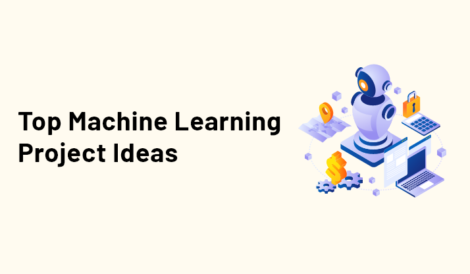After redefining various industries including healthcare, education, automobile, and others, Artificial Intelligence (AI) has impacted our day-to-day life as well. You can find this technology nowadays everywhere. Some of the popular uses of AI in our daily lives are Chatbots, Text Editors, Digital Assistants, E-payments, Facial Detection, etc.
This has increased the demand for professionals in this field. You will get various job options in Artificial Intelligence for different roles including Big Data Engineer, Data Scientist, Business Intelligence Developer, Research Scientist, Machine Learning Developer, and many more. So, if you are looking for a bright professional career with an exciting job opportunity, AI can be the right option for you to consider.
No matter which position you are keen to apply for in AI, you need to do thorough preparation to crack the interview and grab the best job opportunity. You should always try to be ahead of time to make your career successful in this fast-growing field.
In this post, we will cover Top 15 Artificial Intelligence (AI) Interview Questions For Freshers that interviewers most commonly ask candidates. Going through these questions will help you prepare for an Artificial Intelligence interview in the right way with a perfect strategy.
Introduction to Artificial Intelligence (AI)
AI is a technology that includes the ability to create intelligent machines to enable them to do tasks that need human intelligence to complete. It brings the possibility of developing programs and algorithms with the ability to learn and make a decision by mimicking human cognition.
The major goal of Artificial Intelligence gives machines the ability to understand language, solve problems and make decisions just like a human being. AI has numerous applications including computer vision, natural language processing, expert systems, and robotics.
Top 15 Artificial Intelligence (AI) Interview Questions for Freshers (2023)
Here are some of the most common Artificial Intelligence (AI) Interview Questions for freshers in 2023
1. What is Artificial Intelligence?
Artificial Intelligence (AI) is a part of computer science that focuses on implicating the cognitive function of human brains into a machine. So, it functions completely like humans. Some of the activities that machines infused with Artificial Intelligence carry out are learning speech recognition, problem-solving, and planning.
2. What are Types of Artificial Intelligence?
Well, there are different types of Artificial Intelligence including Narrow AI, Strong AI, and Super AI. Narrow AI performs any particular task, whereas general AI is meant to perform a task related to the intellectual level. Super AI, on the other hand, performs those tasks that even surpass human intelligence.
3. What are the Different Branches of Artificial Intelligence?
Popular branches of AI include Neural Networks, Expert Systems, Data Mining, Genetic Algorithms, Swarm Intelligence, Fuzzy Iogic, Pattern Recognition, and Statistical AI.
4. What is the Compound Key in AI?
Well, a compound key is an integration of different elements for generating exceptional identities, even in absence of those data elements that are responsible for defining the substances within a construct.
5. What is a Simulated Annealing Algorithm?
Annealing is a process that involves changing the internal structure of a metal by heating it and cooling it immediately. The same thing applies when it comes to computing where a probabilistic technique is put into practical use for the approximation of a provided function’s global optimum.
6. What are Some of the Programming Languages Developers Use for Creating AI-Based Apps?
Some of the programming languages for AI that developers most frequently use are Python, Java, Prolog, R, Lisp, AIML, Julia, and STRIPS.
7. What are the Various Stages of Learning Artificial intelligence?
Following are different stages of learning Artificial Intelligence.
Artificial General Intelligence (AGI)
AGI is also popular as Strong AI, which is the biggest threat to many scientists’ human existence. It’s a great evolution of AI where machines will be able to make decisions the same as human beings.
Artificial Normal Intelligence (ANI)
It performs only a defined set of activities. It doesn’t have so much thinking power.
Rather, it comes to the capability of performing only a predefined set of functions.
Artificial Super Intelligence (ASI)
ASI is capable of performing everything just like human beings. For instance, Alpha2 is the biggest example of ASI, which is the first human robot.
8. What are the Different Characteristics of Expert Systems?
An expert system is available with various characteristics including Good Reliability, Higher-Level Performance, Adequate Response Time, Domain Specificity, Linked with Metaknowledge, Understandable, Justified Reasoning, Special Programming Languages, Global Reliability, Expertise Knowledge, and Use of Symbolic Representations.
9. What is Machine Learning?
Machine Learning (ML) is a part of Artificial Intelligence, which gives the ability for machines to learn and also improve experience automatically even without any specific external program. It focuses on improving computer programs that can access data directly and use the data for learning. In other words, ML is a subfield of AI that makes use of data to give the machine the capability of solving even complex data most efficiently.
10. What is the Natural Language Process?
Natural Language Processing (NLP) is a part of computer science, AI, and logistics and is related to the communication between humans and computer language that helps specifically in the way program computers analyze and also process the higher amount of natural language data.
11. What are Different Types of Machine Learning?
The different types of Machine Learning have Supervised Learning, Unsupervised Learning, Reinforced Learning, and Semi-supervised Learning.
12. What are the Main Differences between AI and ML
Though ML is a subset of Artificial Intelligence, still there are many differences between them.
| Machine Learning | Artificial Intelligence |
| 1. ML is a part of AI that allows machines to learn data from experience in an automated way. | 1. Artificial Intelligence is a cutting-edge technology that enables machines for imitating human behavior. |
| 2. Deep Learning is a part of Machine Learning. | 2. AI includes two different subsets including Deep Learning and Machine Learning. |
| 3. ML includes learning and also self-correction, especially when you introduce the same with the new data. | 3. Artificial Intelligence includes learning, reasoning, and self-correction. |
| 4. ML is capable of dealing with both structured and semi-structured data. | 4. The technology can deal with structured, unstructured, and semi-structured data. |
| 5. It has a limited scope. | 5. It has a limitless scope. |
13. What is Game Theory in Artificial Intelligence?
In Artificial Intelligence, game theory enables certain crucial capabilities needed in multi-agent environments in that different AI programs are needed to interact to match the goals. It’s an important area of mathematics used for developing strategic interactions between different players with certain predefined rules and results. It’s also used for defining various instances in our day-to-day life and also various ML models.
14. What are the Different Domains of AI?
There are numerous domains of AI. Some of these are Machine Learning, Neural Networks, Robotics, Fuzzy Logic Systems, Expert Systems, and Natural Language Processing.
15. What are the Various Components of Robotics?
Robotic components are Voice Synthesis, Voice Recognition, Cameras, Emotions, Embedded CPU with WiFi, Switchable Head, Linux OS, Prehensive Hands, LiPo Battery, 25 Degrees of Freedom, and 23’’.
Conclusion
These are some of the most frequently asked AI Interview questions that you will face while appearing in an AI jobs. You can also include similar questions and make your preparation accordingly to crack interviews and grab your desired job opportunity.





